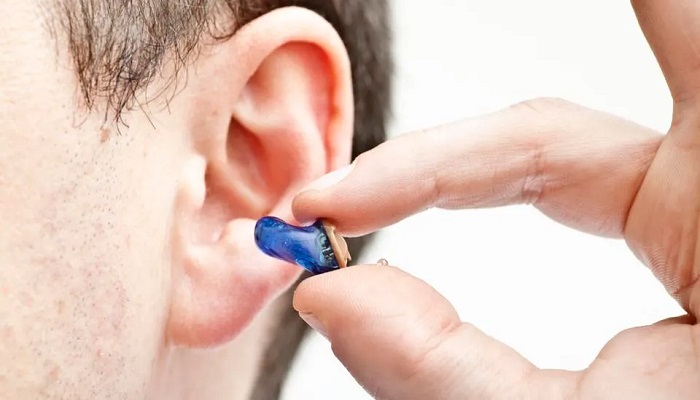Hearing loss affects millions of people worldwide, but thanks to advancements in audiology, personalized hearing aid solutions have become more accessible than ever. Audiologists, the dedicated professionals in the field of audiology, play a crucial role in customizing and fitting hearing devices to meet the unique needs of individuals with hearing impairment. We’ll explore the vital role of audiologists in providing personalized hearing solutions, their expertise in assessing hearing loss, and their contribution to improving the quality of life for patients. Additionally, we will highlight the intersection of audiology and the healthcare sector, underscoring the significance of audiological care within the broader healthcare framework.
The Role of Audiologists in Assessing Hearing Loss
Audiologists are specialized healthcare professionals trained in diagnosing and treating hearing disorders. Their role begins with a comprehensive evaluation of an individual’s hearing abilities. Through a series of tests and assessments, audiologists determine the nature and extent of hearing loss, helping to identify the most appropriate course of action. Based on the diagnosis of the patient’s condition, they will be able to recommend the best hearing aids to use or other assistive listening devices.
These professionals employ various diagnostic tools and techniques, including pure-tone audiometry, speech audiometry, and tympanometry, to evaluate the precise nature and severity of hearing impairment. By conducting thorough assessments, audiologists gather essential information about the individual’s hearing thresholds, speech recognition abilities, and overall auditory function. This comprehensive evaluation forms the foundation for developing personalized hearing devices.
Customizing Hearing Aid Solutions
Audiologists utilize their expertise to customize devices tailored to each patient’s specific needs. This involves careful consideration of factors such as the individual’s lifestyle, communication requirements, and degree of hearing loss.
Following the assessment, audiologists work closely with patients to select the most appropriate assistive hearing devices including their style and technology. There are various styles available, including behind-the-ear (BTE), in-the-ear (ITE), and completely-in-the-canal (CIC) options, each with its own benefits and considerations. By considering factors such as comfort, dexterity, and cosmetic preferences, audiologists help patients make informed decisions regarding the most suitable style of device to wear.
Furthermore, audiologists play a crucial role in determining the technology and features required for optimal hearing assistance. Modern devices offer a range of advanced features, including noise reduction, directional microphones, telecoil compatibility, and Bluetooth connectivity. Audiologists consider the individual’s specific hearing needs and lifestyle factors to recommend the most appropriate technology, ensuring a seamless integration of hearing aids into the patient’s daily life.
Once the hearing devices are selected, audiologists meticulously program and calibrate them to meet the individual’s unique hearing profile. This customization process involves adjusting amplification settings, fine-tuning frequency response, and optimizing speech intelligibility. Audiologists leverage their expertise and knowledge of the latest advancements in hearing aid technology to ensure optimal sound quality and clarity for the patient.
The Intersection of Audiology and the Healthcare Sector
The role of audiologists extends beyond individual patient care to encompass a broader healthcare framework. Within the healthcare sector, audiologists collaborate with other healthcare professionals, including primary care physicians, otolaryngologists (ENTs), and speech-language pathologists, to provide comprehensive hearing healthcare services.
Audiologists work hand-in-hand with primary care physicians to ensure early identification and referral for individuals with hearing loss. This collaboration promotes timely intervention and minimizes the impact of hearing impairment on an individual’s overall health and quality of life. Audiologists also collaborate with otolaryngologists to address complex hearing conditions and provide specialized care for patients requiring medical interventions.
Moreover, audiologists work closely with speech-language pathologists to develop comprehensive treatment plans for individuals with hearing loss and speech-language difficulties. This collaborative approach helps optimize communication outcomes and ensures holistic care for patients.
In addition, audiologists contribute to public health initiatives by raising awareness about hearing loss, advocating for hearing screenings, and promoting hearing conservation practices. They actively participate in community outreach programs, educating the public about the importance of early intervention and the available hearing healthcare resources.
Audiologists play a vital role in customizing personalized hearing solutions for individuals with hearing loss. From assessing hearing loss to customizing and fitting hearing aids, audiologists bring expertise and knowledge to enhance the quality of life for their patients. Their work intersects with the broader healthcare sector, promoting collaboration with other healthcare professionals and contributing to comprehensive hearing healthcare. By recognizing the essential role of audiologists, we can appreciate the value they bring in addressing hearing loss and ensuring optimal auditory function and communication abilities for individuals in need.


















